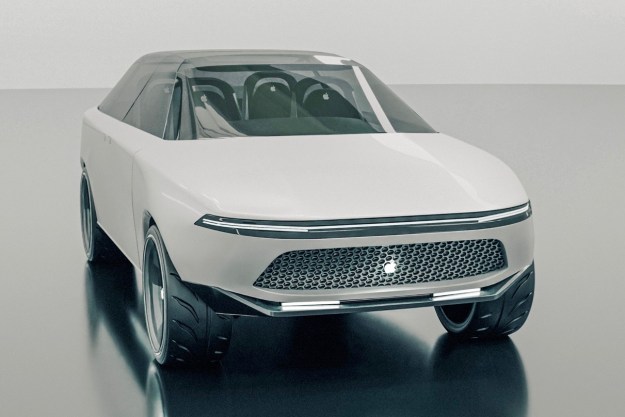A special jacket that helps autonomous vehicles “see” cyclists has won a prize at an international design conference.
Created by design student Philip Siwek, the reflective jacket incorporates several QR codes that could one day help self-driving cars and trucks better detect cyclists and understand their intended movements.
Siwek, based in Vancouver, Canada, collected the award at the recent IDEA International Design Conference in Chicago, Illinois.
“The idea came from looking at the work being done in autonomous vehicles and seeing a lot of questions being asked about how they might change our interactions in a verity of contexts, but few of those questions had to do with cyclists,” Siwek told Digital Trends.
In a post on his website explaining the jacket’s design, Siwek notes how cyclists represent a unique challenge for autonomous vehicles as they’re “light, nimble, and fast.”
Further difficulties can arise because of their “open structure, low mass, and minimal surface area,” Siwek said. “The tube frame and wire construction provide little opportunity for lidar to receive enough laser strikes for proper detection.”
He said he wanted to create a system that would be highly effective in situations where a self-driving car’s sensors and object-recognition algorithms come under the most pressure. These include, for example, driving at night, in inclement weather, and in high-density urban areas.
The design and placement of the QR codes is key to the jacket’s performance. With different barcodes in different places, the autonomous car would recognize not only that a cyclist is ahead, but also what part of the cyclist it’s looking at, allowing it to better understand the context of the object within its environment.
Siwek also suggested that the vehicle’s software could be designed to understand a cyclist’s body movements when indicating an intention to change lanes or take a turn.
Importantly, the designer took into account the fact that many cyclists ride with a backpack, prompting him to place the QR codes away from areas where they would otherwise be covered. Getting riders to don the jacket in hot weather, well, that’s another challenge entirely.
As sensor technology continues to improve, it’s possible that in the coming years a safety measure like this won’t be required. Nevertheless, it’s always great to see up-and-coming designers receive recognition for their innovative ideas.
“Along with the joy of winning the award, I feel honored to have established design professionals from all over recognize my work,” Siwek told Vancouver media outlet Richmond News. “I just had an idea and made sure to explore it the best I could.”
Digital Trends has reached out to some leading autonomous vehicle developers to ask what they think of the design and we will update this piece if and when we hear back.
Editors' Recommendations
- Beleaguered robotaxi startup Cruise lays off quarter of workforce
- Cruise’s robotaxi service suspended by California regulator
- Cruise autonomous vehicle drives over woman just after she was hit by another car
- Waymo taps the brakes on its autonomous-trucking project
- Volkswagen is launching its own self-driving car testing program in the U.S.



